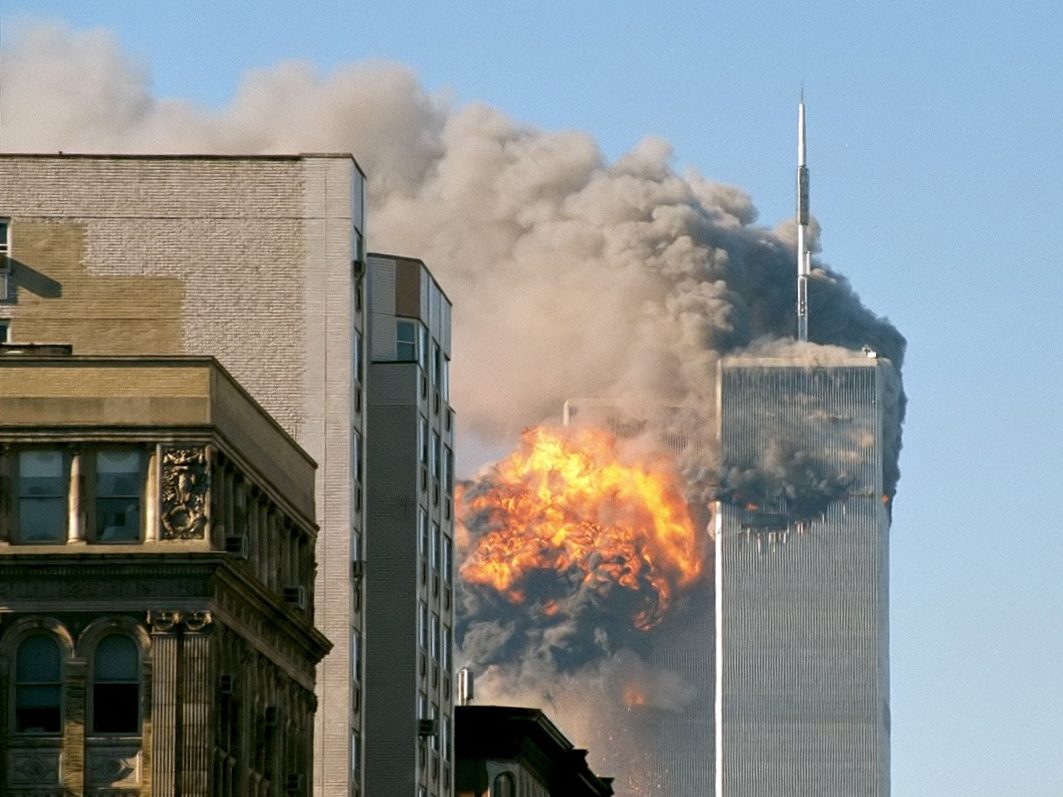The night of September 10, 2001 always sticks in my mind. It was the first night that I could put my hand on my ex-wife’s pregnant belly and feel my oldest daughter move inside. I was ecstatic. The next morning, I still had a massive grin on my face as I showed up to work and quickly proceeded to tell everyone I knew. I was still grinning as we all sat down to our morning meeting, when a security guard told us a plane had hit one of the towers at the World Trade Center, just a few miles away.

We quickly turned on a TV just in time to see a second plane striking the other tower. The smile I had been wearing since the night before quickly vanished.
My daughter is now a college sophomore in college and for her entire life the United States and our allies have been fighting in Afghanistan. Now, after 20 years, the Taliban are back in power just as they were on that fateful morning in 2001.
When they last ruled the country, from 1996 to 2001, the Taliban used a harsh form of sharia law to control the nation and its people. They banned television, movies, music, and all visual representations of living creatures, including people.
Women were barred from school and work, were forced to wear a burka outside their homes, and had to be accompanied by a male relative while out of doors. The Taliban also destroyed cultural treasures that they saw as un-Islamic. Punishments for breaking the rules could be harsh, and executions were not uncommon.
The Taliban have said they will not retaliate against those who worked for Western powers or the former Afghan government. They have also said there would be no violence against women, who would be allowed to work and study.
Taliban spokesman Zabihullah Mujahid also told Reporters Without Borders (RSF) that “no threat or reprisal will be carried out against journalists.” He added: “We will respect freedom of the press, because media reporting will be useful to society and will be able to help correct the leaders’ errors.”
“Through this statement to RSF, we declare to the world that we recognise the important role of the media.”
But the Taliban’s commitment to these pledges is already starting to weaken, less than two weeks since they came to power. There have been reports of the Taliban killing, detaining and intimidating people across the country. Amnesty International has reported that the Taliban have killed a number of Hazaras, an ethnic group of Shia Muslims who have been persecuted under the Taliban in the past. And reports of people being beaten and killed while trying to flee the country are widespread.
There have been reports of attacks on and harassment of journalists, and a refusal in some cases to allow women to work. Two women broadcasters for Radio Television Afghanistan, Shabnum Dawran and Khadija Amin, have been barred from its offices by Taliban members who took control of the station. Male journalists have been allowed to enter.
Journalists Babrak Amirzada and Mahmood Naeemi were beaten by the militants while covering protests against Taliban rule in Jalalabad. Marcus Yam of the Los Angeles Times was attacked along with a fellow journalist at a similar event in Kabul, an ordeal recounted in a piece for the L.A Times.
Taliban militants have also been raiding the homes of journalists across the country. The house of Khadija Ashrafi, the manager or the Bakhtar News Agency, was raided in Ghazni, while Zalmay Latifi, the director of Enikass Radio and TV had his home in Kabul raided. The Taliban have also raided the homes of at least three employees of the German broadcaster Deutsche Welle. In a hunt for one of the journalists Taliban militants killed one of the members of the journalist’s family and injured another.
Across the country, around 100 privately-owned local media outlets have shut down, according to figures from Reporters Without Borders, mainly outside of the capital. Those in Kabul, while still operating, face daily threats.
“In the past week, the Taliban have beaten five of our channel’s reporters and camera operators and have called them ‘takfiri’ [tantamount to calling them ‘unbelievers’, in this context],” one producer told Reporters Without Borders. “They control everything we broadcast. In the field, the Taliban commanders systematically take the numbers of our reporters and tell them: ‘When you prepare this story, you will say this and say that.’ If they say something else, they are threatened.”
An owner of one radio station told RSF: “A week ago, they told us: ‘You can work freely as long as you respect Islamic rules’ [no music and no women], but then they began ‘guiding’ us about the news that we could or could not broadcast and what they regard as ‘fair’ reporting.”
Working together, The New York Times, the Washington Post and the Wall Street Journal have collectively had some success getting their Afghan reporters and their families out of the country. For the New York Times their most recent extractions involved much behind-the- scenes negations between various parties. Officials in Mexico cut red tape in order to allow the Afghans into that country temporarily pending permanent resettlement.
The scenes at Kabul airport since the Taliban took Kabul on August 15 have been heartbreaking to watch, reminiscent of the fall of Saigon in 1975. Two photographs, one from 1975 and one from the other week, of helicopters flying low over the respective US embassies are eerily similar.
The photographs and videos of people falling from planes are grimly reminiscent of the “falling man” photograph from 9/11 at the World Trade Center, bookending 20 years of war.
With the deadline for full withdrawal just days away, it does not appear that all of those who want to get out will be able to do so. How far, and how fast, Afghanistan will descend into the Taliban’s preferred version of sharia law is still unknown. The safety of journalists, women, and those who worked for the west is uncertain.
Afghanistan is not the only country, nor will it be the last, where those in power crack down on human rights and the freedom of the press to maintain their power and silence critical voices. So far this year 27 journalists have been killed around the world for their work. That is seven more since my last piece just a month ago.
As Afghanistan slides into uncertainty and repression, how many more will be added to the list this year? And how many will we not even know about?
Support HKFP | Policies & Ethics | Error/typo? | Contact Us | Newsletter | Transparency & Annual Report | Apps
Help safeguard press freedom & keep HKFP free for all readers by supporting our team
| HKFP is an impartial platform & does not necessarily share the views of opinion writers or advertisers. HKFP presents a diversity of views & regularly invites figures across the political spectrum to write for us. Press freedom is guaranteed under the Basic Law, security law, Bill of Rights and Chinese constitution. Opinion pieces aim to point out errors or defects in the government, law or policies, or aim to suggest ideas or alterations via legal means without an intention of hatred, discontent or hostility against the authorities or other communities. |

More HKFP OPINION:
HKFP has an impartial stance, transparent funding, and balanced coverage guided by an Ethics Code and Corrections Policy.
Support press freedom & help us surpass 1,000 monthly Patrons: 100% independent, governed by an ethics code & not-for-profit.










